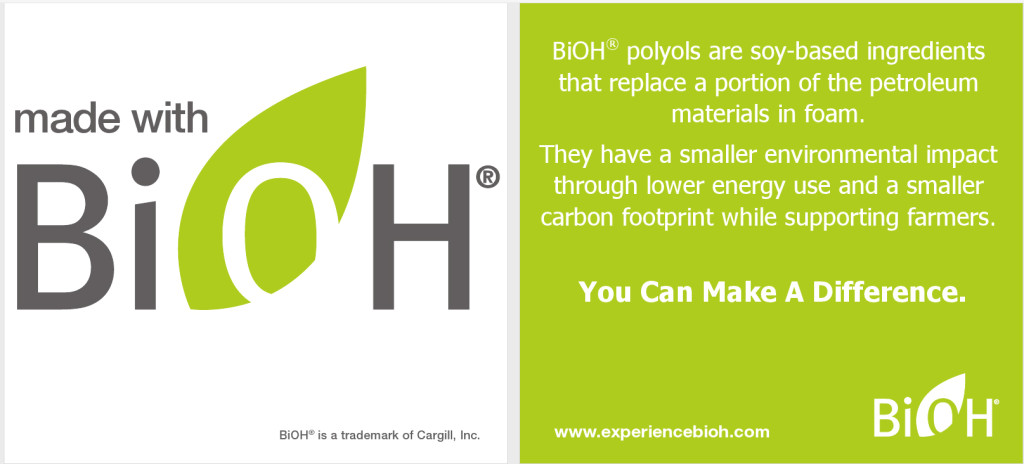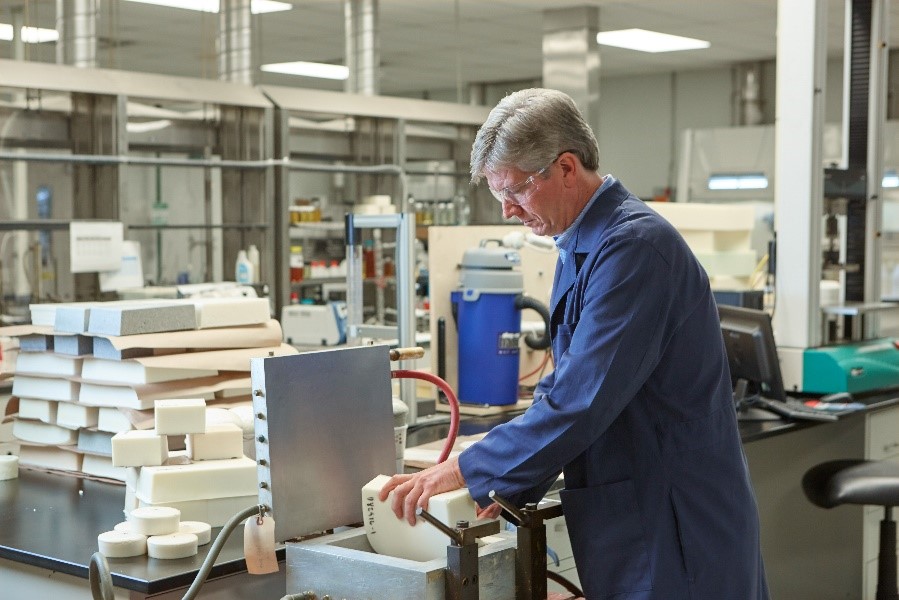Soy Polyols Replace Petrochemicals in Diverse Products
June, 2011
Natural oil polyols (NOPs) represent a versatile component in products ranging from foam furniture to insulation.
NOPs, polyols derived from vegetable oil such as soybean oil, can replace the petrochemicals now commonly used in polyurethanes. NOPs represent one environmentally friendly option for manufacturers facing challenges of developing greener products. By performing at least as well as and sometimes better than petrochemical products, in addition to offering environmental benefits, NOPs are quickly becoming a popular ingredient in product formulations. Manufacturers use NOPs in urethane coatings, elastomers and sealants. Contractors and consumers can now find commercial and residential insulation produced with NOPS. And perhaps the foam in your couch contains NOPs.
 Manufacturers mix Cargill’s soy-based BiOH® polyols and petro polyols with isocyanate, which reacts and yields polyurethane. This polyurethane can take many forms, including flexible and rigid foams, coatings, adhesives, sealants and elastomers.
Manufacturers mix Cargill’s soy-based BiOH® polyols and petro polyols with isocyanate, which reacts and yields polyurethane. This polyurethane can take many forms, including flexible and rigid foams, coatings, adhesives, sealants and elastomers.
Changing the way manufacturers produce foam can positively impact the environment. Every 1 million pounds of Cargill BiOH® polyols used in furniture and mattresses replaces more than 85,000 gallons of petroleum.
To learn more about Cargill’s soy-based BiOH polyols, visit www.bioh.com.



